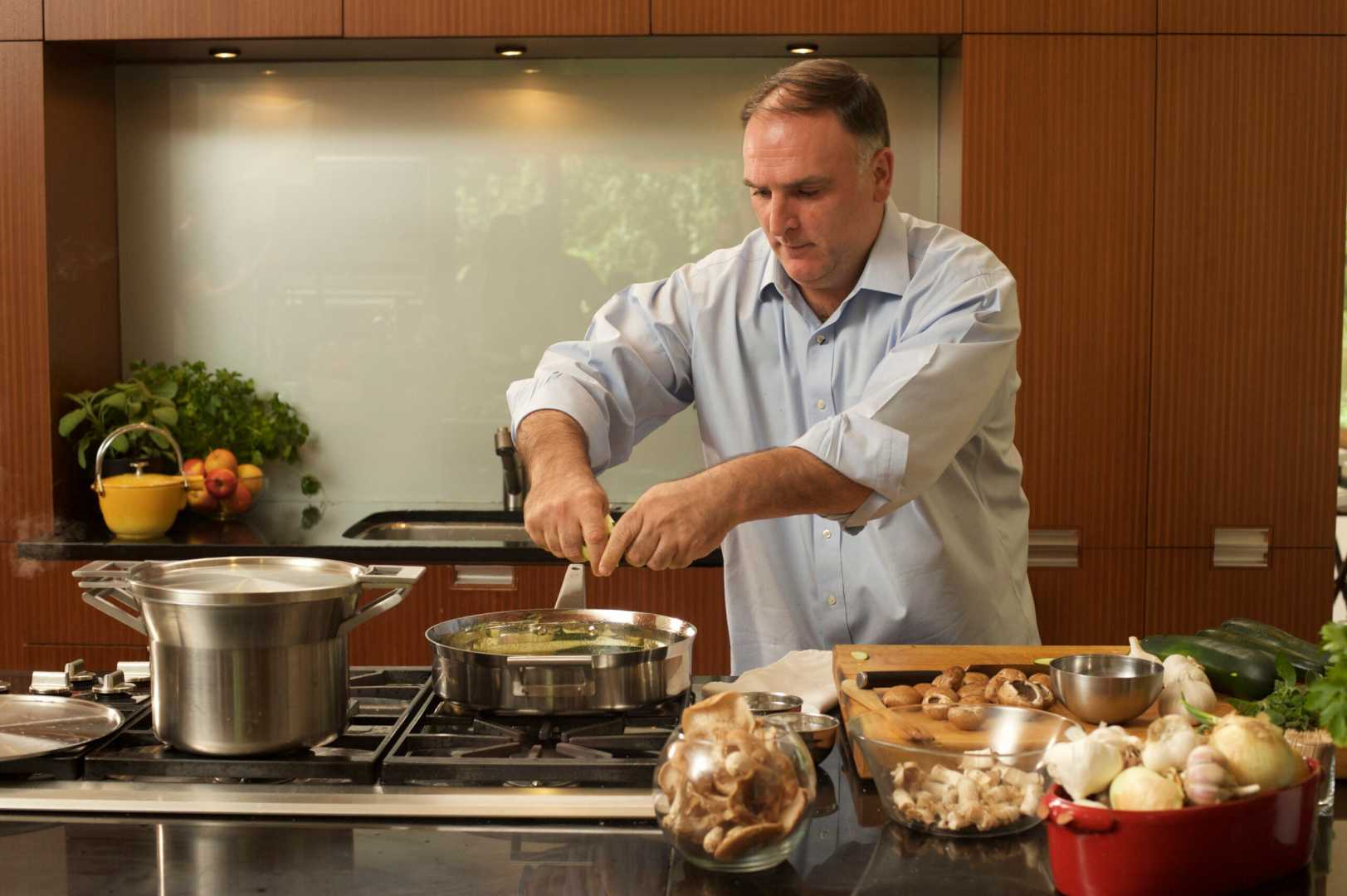Entertainment
Chef José Andrés Blends Culinary Art with Humanitarian Efforts

WASHINGTON, D.C. — Chef José Andrés, renowned for his humanitarian efforts and culinary expertise, often finds himself in crisis zones, providing meals to those affected by disasters. Yet, in a rare moment at his home, Andrés prepares a Spanish omelette while discussing his new book, set to release on April 22.
“If you don’t move, you will learn nothing,” Andrés states, reflecting on his career and the importance of taking risks. His journey began in a small kitchen in Spain, where he learned that food symbolizes happiness and community. In 1993, he opened Jaleo in Washington, D.C., introducing American diners to tapas, a concept centered on sharing food as a celebration.
When asked about the initial challenges of explaining the dining experience of tapas, Andrés smiles, saying, “In early days, I think the big message of sharing is happiness.” He recalls telling diners that sharing food would enhance their enjoyment, humorously referencing the “20-inch solution”—a method of establishing personal space at the table.
Andrés expanded his culinary repertoire by opening Minibar by José Andrés in 2003, a small yet innovative restaurant that earned two Michelin stars. He describes it as a blend of both traditional Spanish dishes and modern experimentation, emphasizing the dynamic nature of culinary traditions.
Now leading the José Andrés Restaurant Group, which boasts nearly 40 establishments nationwide, Andrés took a step back last year to focus on various projects, including his Global Food Institute at George Washington University. He admits that balancing his culinary endeavors with humanitarian missions is challenging, often bringing back emotional remnants from the field.
“Every time I come back from those missions, it’s hard to come back, because a part of your brain will always be there,” he notes. He speaks of the unique dichotomy in his work—serving exquisite meals in his restaurants while simultaneously providing nourishment to those in dire need.
His organization, World Central Kitchen, has been pivotal in responding to natural disasters and humanitarian crises since its inception in 2010. The initiative sources ingredients locally and employs local infrastructure, fostering a sense of community recovery. Following Hurricane Maria in 2017, Andrés and his team provided four million meals to Puerto Ricans in need.
In 2024 alone, World Central Kitchen served over 109 million meals across 20 countries. Describing the complexities of operating in war zones, he insists, “We don’t take sides. We feed people.” This philosophy guided him during recent conflicts, including providing assistance in both Israel and Gaza. “Food and water is, and must always be, a universal right,” he asserts.
Reflecting on the loss of close friends in recent conflicts, Andrés says, “When you lose somebody, especially when it’s people you love, it makes you think: how are we going to help the world without taking risks?” He believes addressing deep-rooted hate with compassion is essential, asserting the importance of building community and understanding among diverse groups.
At 55, Andrés recognizes his limitations in physical presence but expresses confidence in his team and the collective empathy within humanity. “I didn’t call it José Andrés Kitchen! This organization belongs to so many people,” he emphasizes. He aims to allocate his time more wisely, trusting that others will continue the humanitarian mission in his stead.
As he explains his role in both the restaurant and humanitarian sectors, he reiterates his fundamental belief: “Life must go on. It’s okay to enjoy a meal while remembering those who are not as fortunate. We must do something for them.” With every dish prepared and every meal served, Chef José Andrés continues to blend the art of cooking with the heart of humanitarianism, proving that food can be a powerful force for change.












